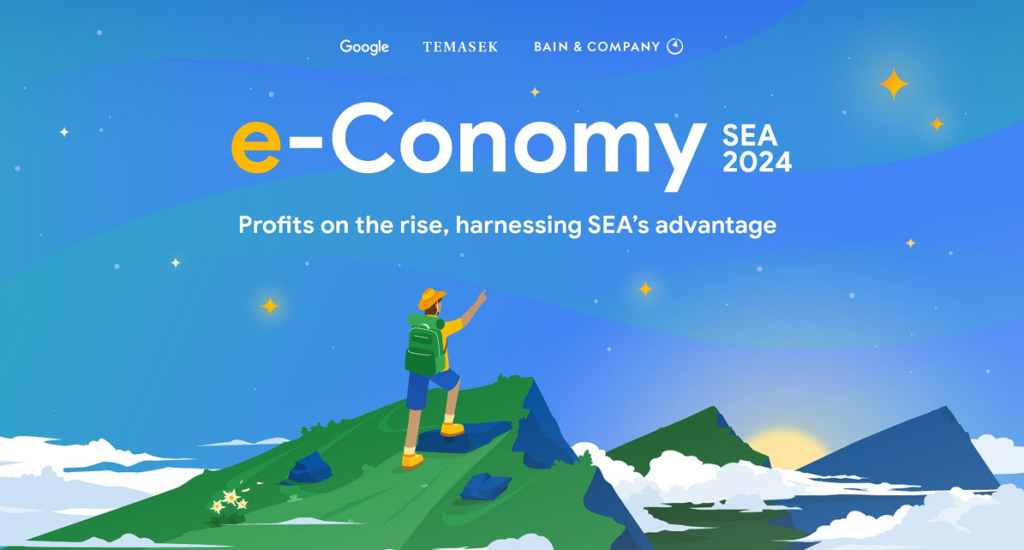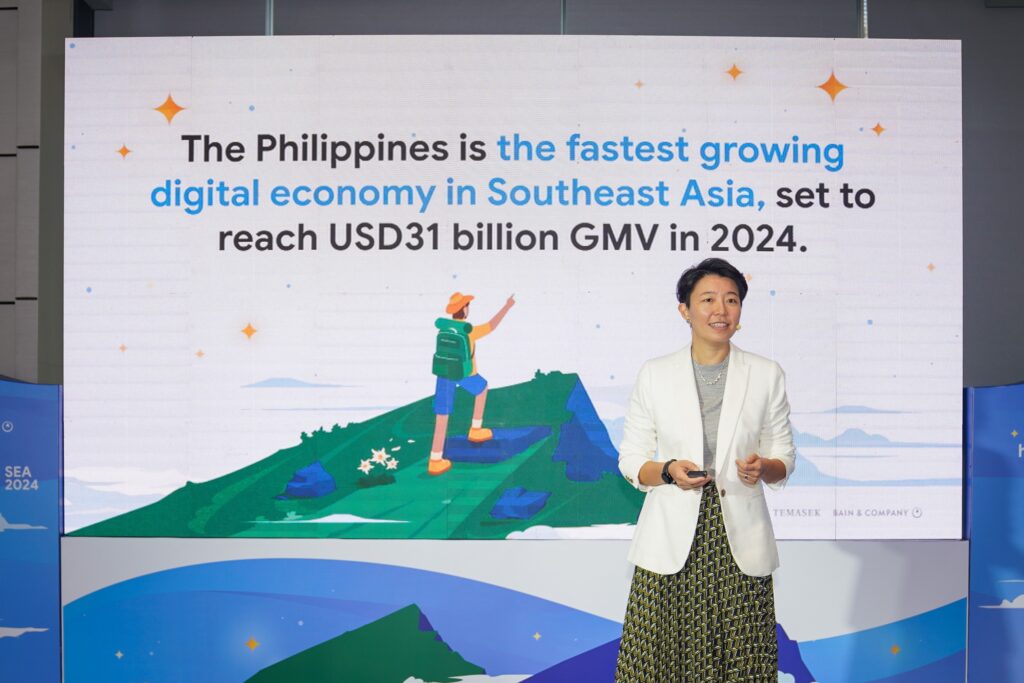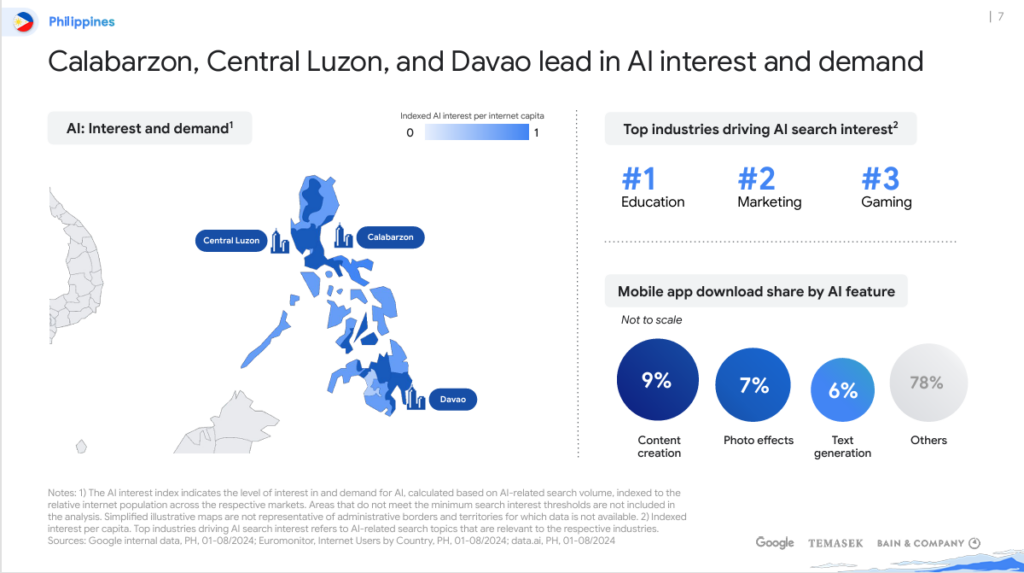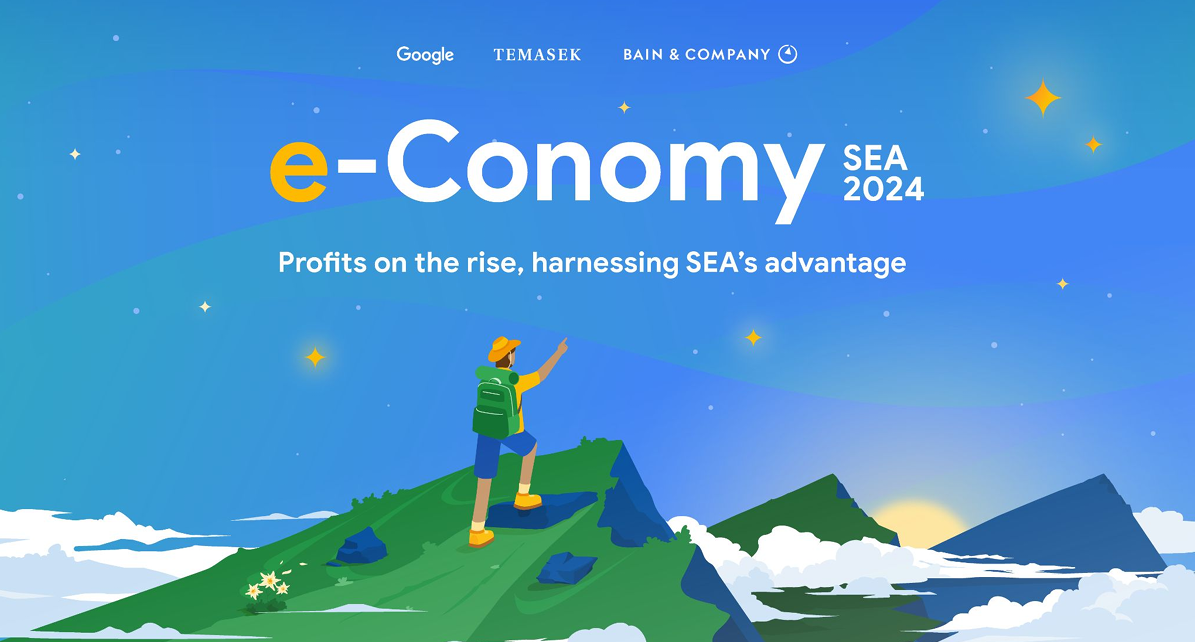by Jan Michael Carpo, Reporter
Google has spotlighted the Philippines as Southeast Asia’s fastest-growing digital economy, with gross merchandise value (GMV) soaring from US$26 billion in 2023 to a projected US$31 billion in 2024.
This remarkable milestone, unveiled in the e-Conomy SEA 2024 Report by Google, Temasek, as well as Bain & Company, highlights robust expansion across e-commerce, digital payments, and online transport and food delivery. This growth reflects the nation’s increasing digital adoption, fueled by strong domestic consumption, a revitalized services sector, and remittances from overseas Filipinos.

DTI Secretary Ma. Cristina Roque welcomed the findings, attributing the success to the Marcos Jr. administration’s strategic reforms.
“The results of the 2024 Google, Temasek, and Bain & Co. study reaffirm the effectiveness of the administration’s digital economy strategies. The country’s whole-of-government approach fosters economic growth, drives innovation, and ultimately improves the lives of all Filipinos,” Roque stated.
Key government initiatives, such as the Internet Transactions Act and the 12% value-added tax on non-resident digital services, were identified as pivotal in levelling the playing field between local and global businesses. “In strong partnership with the private sector, we are actively implementing the e-Commerce Philippines 2028 Roadmap. This roadmap outlines strategies to stimulate e-commerce growth and build trust between online consumers and businesses,” the DTI Secretary further emphasized.
The Philippines’ thriving e-commerce sector, which grew by a record 23% to US$21 billion GMV, highlights the vast potential of its young, tech-savvy population. Alongside digital payments and online transport services, e-commerce is viewed as a key driver of economic growth, job creation, and government revenues.
“The Philippines is strategically positioned to maximize its demographic advantages and technological capabilities to become a dominant force in the global digital economy,” Roque added, further reinforcing the nation’s commitment to sustaining its digital momentum and global competitiveness.
Google Report sees e-commerce, digital payments driving growth across sectors
The Philippines’ digital economy is growing at double-digit rates, fueled by strong domestic consumption, a revitalized services sector, and steady remittances. The report reveals impressive growth across industries:
- E-commerce — at a record 23% growth, the Philippines leads SEA, reaching US$21 billion in GMV. Key drivers include increased investments from major platforms and the rise of video commerce.
- Online transport and food delivery — growing at 13%, the sector is on track to hit US$3 billion GMV in 2024. Platforms are focusing on profitability through innovations like subscription plans and tiered delivery services.
- Digital payments — surging 22% to US$125 billion in gross transaction value (GTV), the sector reflects increasing adoption of e-wallets and digital payment solutions, bolstered by competitive fees and improved security measures.
The Philippines also leads in online travel, which rebounded to US$3 billion GMV, a 13% year-on-year increase, with outbound travel spending skyrocketing by 450% since 2020.
The online media sector, encompassing video streaming and gaming, grew by 12%, thanks to rising advertising revenues.
Google’s role in empowering the Philippines’ digital economy
As a key enabler, Google has played a pivotal role in the Philippines’ digital transformation.
Through its tools and platforms like Search, YouTube, and Google Cloud, Google has provided critical infrastructure for businesses and individuals to thrive in the digital economy.

Jackie Wang, Google Country Director for the Philippines and Thailand
Jackie Wang, Google’s Country Director for Thailand and the Philippines, emphasized the importance of AI adoption and inclusivity in sustaining growth.
“The Philippines is once again Southeast Asia’s fastest-growing digital economy – thanks to its tech-savvy population, thriving digital sectors, and supportive government,” Wang noted in her presentation of the report’s key findings. “The country ranks among the global top 10 for AI search interest, too, highlighting its potential to become a leader in AI adoption. To keep all this momentum towards a sustainable digital economy, inclusivity is key.”
“By actively expanding opportunities and ensuring underserved communities can fully participate, we can create a digital future where more Filipinos can thrive,” she concluded.
AI adoption and digital transformation

The report further highlights the Philippines’ readiness to embrace artificial intelligence (AI), ranking among the global top 10 countries for AI-related search interest.
Filipinos are particularly keen on AI applications in education, marketing, and gaming, with search trends expanding beyond Metro Manila into regions like CALABARZON and Davao.
This enthusiasm aligns with the government’s broader efforts to foster digital adoption.
Key initiatives like the Philippine Digital Infrastructure Project are set to improve connectivity in rural areas, while policies from the Department of Trade and Industry (DTI) and the Bangko Sentral ng Pilipinas (BSP) continue to strengthen the digital ecosystem.
Earlier in June this year, Google also announced a new AI upskilling initiative for the Philippines in a bold effort to stimulate economic growth and enhance digital skills across the archipelago.
Called the “Google AI Essentials course,” this initiative offers a self-paced online program taught by AI experts at Google that requires no prior experience with AI. It also aims to boost productivity by providing hands-on experience with various AI tools in less than 10 hours.
Sustained investments in infrastructure
After a dip in 2023, investments in the Philippines’ digital infrastructure have rebounded, reflecting renewed confidence in the country’s potential.
So far, the private sector has committed P0.2 billion this year, with nascent digital sectors receiving 60% of this funding.
This resurgence has been driven by supportive government policies that are aimed at enhancing online safety, regulating digital service providers, and fostering a competitive digital environment.
Global partnerships driving growth
The e-Conomy SEA 2024 Report reinforces the effectiveness of the government’s strategies and underscores the Philippines’ critical role in SEA’s digital landscape.
According to Bennett Aquino, Partner at Bain & Company, businesses must align their AI initiatives with real-world objectives to unlock the full potential of generative AI and other technologies.
As the country continues its journey as a regional leader in digital growth, Google remains a cornerstone in enabling innovation and inclusivity.
By empowering businesses and individuals with cutting-edge tools and insights, Google contributes to building a sustainable and inclusive digital future for the Philippines.
To read the full report, visit e-Conomy SEA 2024 – PH








